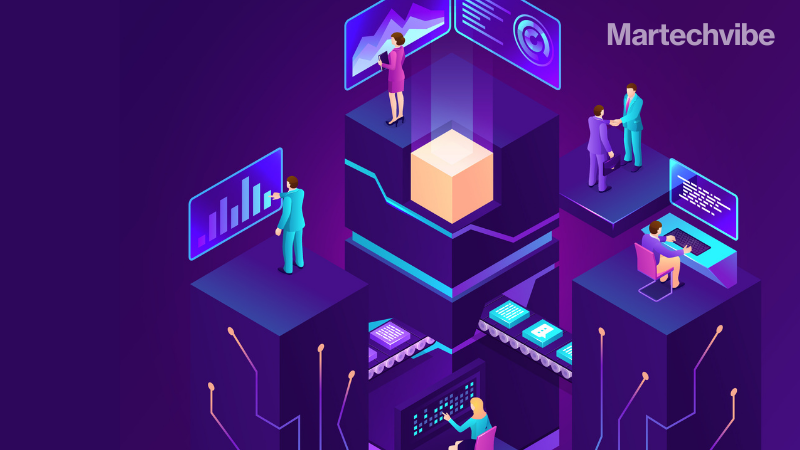Business Intelligence for MarTech Leaders
Aziz Rofat’s day starts with a cup of strong coffee. After his morning cuppa, Aziz, who heads category management for one of the Middle East’s luxury retailers, logs into his system to access his daily sales report trying to make sense of the numbers. This has been his routine for the last 15 years. But […]
Topics
Aziz Rofat’s day starts with a cup of strong coffee. After his morning cuppa, Aziz, who heads category management for one of the Middle East’s luxury retailers, logs into his system to access his daily sales report trying to make sense of the numbers.
This has been his routine for the last 15 years.
But what used to take him a couple of hours every day, now takes only a few minutes; ever since his organisation implemented Business Intelligence tools.
While ‘data analytics’ is the latest buzz word to capture the imagination of the corporate world, many don’t realise that it is but a subset of ‘business intelligence’, which has been revolutionising the lives of business leaders such as Aziz for quite some time now.
So, What is Business Intelligence?
According to Gartner, business intelligence includes “the applications, infrastructure and tools, and best practices that enable access and analysis of information”.
A simple definition for business intelligence would be making sense of raw data, representing insights in a manner which appeals to the end-user, and empowering business leaders to take quick and informed decisions. What is key here is to understand that business intelligence combines data and its storage, processing and analysis of this data, and visualisation and dashboarding of results.
Also Read: Businesses Anticipate 17% ROI From Digital Transformation Activities Over Next 12 Months
Marketers and Business Intelligence
Modern businesses collect and store huge quantities of data. Ranging from data, customer feedback and queries, to online engagement metrics, data can be structured or unstructured. Increasingly marketing teams are expected to drive better business results with the data at their disposal, making business intelligence critical for marketers.
Popular BI tools such as Microsoft Power BI, Tableau, Qlikview, etc. help marketers to evaluate current performance with historical performance benchmarks, spot trends, analyse customer behaviour, and optimise performance. One often-underappreciated benefit of having a robust BI infrastructure in place is the ability to identify inefficient business processes and take prompt corrective action, saving time and precious resources.
Popularity of Business Intelligence
The popularity of various BI tools among marketers can be primarily attributed to the fact that they don’t require the marketer to have any programming skills. Managers can create relevant dashboards within minutes through the ‘drag & drop’ functionality offered by all the leading BI tools. With the ability to connect with simple excel worksheets to structured SQL databases, BI tools provide versatility and the ability for businesses to derive maximum value for their data. All this makes BI tools, an unavoidable component of a marketer’s tech stack.
Also Read: Understanding and Influencing Customer Behaviour Using Customer Data
BI Tools for Marketers
InsightSquared
Helps sales operations professionals break the cycle of spreadsheets by equipping them with actionable, real-time intelligence on virtually all sales KPIs.
Tableau
Three guys from Stanford came together to make data understandable to ordinary people and the rest, as they say, is history. Renowned for their stunning visual representations, Tableau, though on the expensive side, has made business intelligence and analysis accessible for the non-IT business professional.
Microsoft Power BI
Used by Heathrow Airport, Power BI from Microsoft is a powerful platform with impressive usability, an array of data connectors, and exceptional data visualisation capabilities. Recommended if you are already using other Microsoft tools, as there would be effortless compatibility. In addition, Microsoft has announced that it would unify access to data between Power BI and Azure Data Lake Storage Gen2, a data lake that lets enterprises run large-scale analytics workloads in the cloud.
IBM Cognos Analytics
Positioned as a self-service BI tool powered by artificial intelligence (AI). Users can easily clean and prep the data with just a few clicks prior to running an analysis on it. The system prompts the user from time to time to exercise, suggested cleaning and prep tasks on data sets.
Other BI tool options include Chartio, SAS, Qlik, ThoughtSpot, Sisense, Yellowfin, and so on.
Also Read: The Impact of Predictive Analytics on Customer Experience
According to Gartner, by 2021, natural language processing (NLP) and conversational analytics will boost analytics and business intelligence adoption from 35 per cent of employees to over 50 per cent, including new classes of users, particularly front-office workers; making it all the more easier for organisations to derive maximum value from their BI investments. With the amount of data accessible to businesses today, implementing a BI software to better understand and act on that data is a business imperative.





